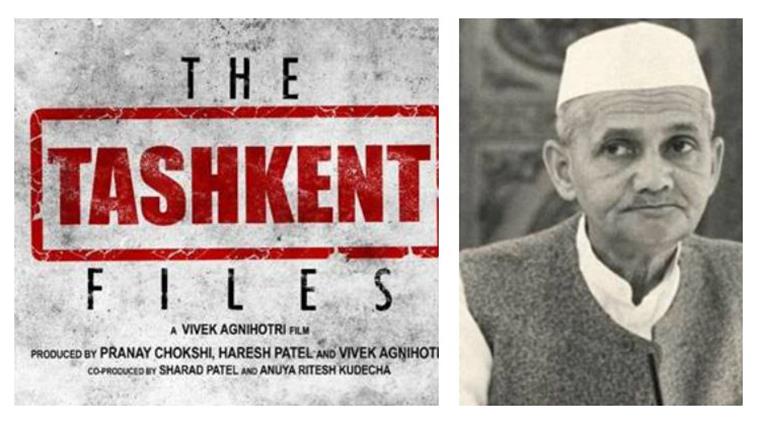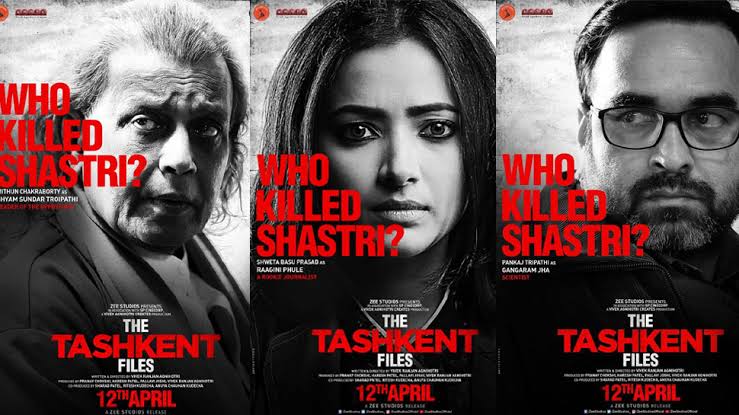The Tashkent Files Review: Vivek Agnihotri raises some serious questions
This content has been archived. It may no longer be relevant
For the generation born after 1966, upheavals in the political history of India may not matter much. But director and author, Vivek Agnihotri want to stir the hornet’s nest by opening the controversial chapter that surrounds the death of India’s second Prime minister of 19 months, Mr. Lal Bahadur Shastri. An unfortunate incident hushed up under bureaucratic files and political ill will is still shrouded under mystery and suspense.
Rating: 2.5/5.0

After signing the Tashkent treaty in Russia, Prime Minister Shastri was declared dead as a result of cardiac arrest. Unbelievable though because no official investigation was carried out by India or at international level. Also, the circumstantial evidence suggested unnatural death. Poisoning is one of them.
THE TASHKENT FILES asks four pertinent questions as to:
- Who killed Lal Bahadur Shastri?
- Who was going to be benefitted by his death?
- Which important news was he going to deliver to the nation after his return?
- Why was post mortem not carried out for final diagnosis??
Unanswered questions still haunt his near dear ones who are yet to make peace with controversial past.
THE TASHKENT FILES opens to modern India where a determined reporter armed with Apple accessories vows to find the truth. Even if it means risking her life in exchange. Generally, open-ended real-life mysteries require deep research with believable result theories to its credit. And the film quotes every author, every book and almost every source. In fact, the director has been brave enough to read out Mitrokhin report from the book, “The KGB in the World”.
It gives out some really startling facts which are unknown to
The Plot
Coming back to the current scenario, on the insistence of an opposition leader, Ghanashyam Tripathi, a committee is formed by the Home Minister to carry out a fair probe. A motley crowd comprising of a retired judge, bureaucrat, historian, NGO worker, politician, and the said reporter decide to get into the sparring match with each other. In the first half, THE TASHKENT FILES almost slips into popular ‘Nation-wants-to-know’ mode.
Grabbing attention by thumping fists on the tables, stomping out of the doors and banging books on the walls were certainly not making any sense. One got a feeling of watching television debate that is more of a shrill dog-fight between opinionated panellists. With just a multitude of proofs piling up, the film was going nowhere with its ammunition. Adding insult to the injury were otherwise talented theatre actors, going absolutely ballistic with their shallow characters.
But respite comes in the second half when the reporter unearths some incriminating evidence. At this point, the director cleverly stirs his ship in a new direction.
His theories on ‘Urban Terrorism’ and ‘Collective Nationalism’ are worth standing up and taking notice. He wonderfully explains the twisted theory of ‘Loss of real secularism’ and ‘Rise of pseudo Socialism’.
Indeed, as the film portrays, today’s youth is blissfully unaware of or is purposefully kept in dark about the real history of India. In the meantime, one is really taken aback by the linking of evidence to the largest political party of India who has ruled for the past 70 years. That also explains the ‘timing’ of the film’s release per se 😊. Even unwanted pot-shots at various scams like 2G, 4G, CWG etc seem like a rabble-rousing trick.
Though THE TASHKENT FILES tries to make a small attempt to unravel this truth, it will be brushed under the carpet as ‘election propaganda’.
The Cast

To its credit, the film is fast paced with the reporter, Shweta Basu, giving a splendid performance. Initially, this bubble gum chewing – wine guzzling city girl earns our irritation. But later
Mithun Chakraborty as Head of Tripathi Committee moves around like a king who has fought and won many battles. His mannerisms and talk of an
Mandira Bedi, Pallavi Joshi-Agnihotri, Pankaj Tripathi, Belavadi, Sharma and others form the committee members. They represent infinite pools of talent but fail to rise above poorly written characters. But their presence does give few brownie points to the film.
Most of the film is shot inside a dim-lit hall so crunching dialogues take the centrestage.
Though THE TASHKENT FILES proves nothing impressive by digging out controversial pages from Google. But it does put up a serious question mark on the integrity of state rulers and learned intellectuals and that should ring alarm bells for young voters.
